
 Flash News
Flash News
The body of a 29-year-old man in Klos is found after 6 days
Arrested a few meters from SPAK, the Special Prosecution seeks 17 years in prison for the drug 'boss'
Giro D'Italia starts today, here are the road axes that will be blocked in Tirana from 13:00-18:00
Who is the new Pope?
Pope Leo XIV greets the faithful for the first time in St. Peter's Square
Berisha-Rama registration: the return like every December of an anti-PD thesis
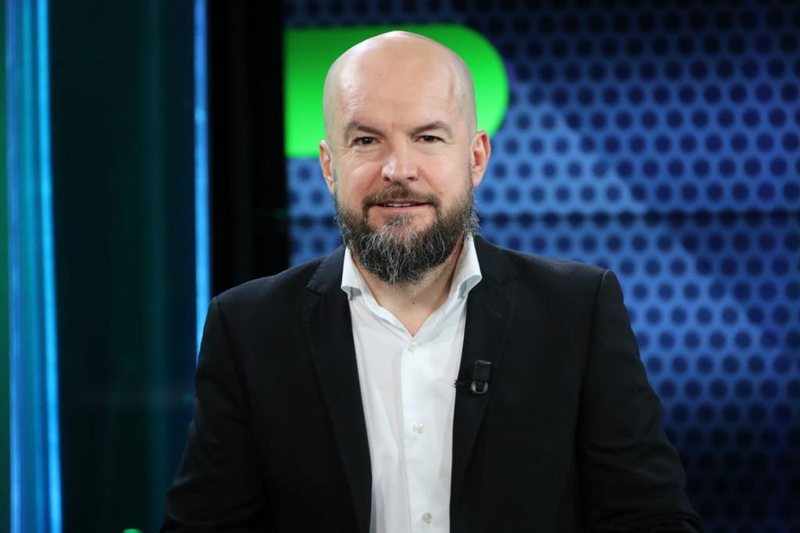
Alfred Lela
October and December are the two months of every year, when in Albania, even though it is winter, the tree of certain political-cultural fury blossoms from the fleur du mal. In October, all the young persecutors of Ismail Kadare go out and rejoice on social networks, like jihadists after a terrorist act, when the writer, a compatriot of theirs, is not awarded the Nobel Prize in Literature. In December, other people, but from the same race of subversives, say that the December Movement, which paved the way for pluralism, opposition, and the Democratic Party, did not bring about a revolution, but it was the 'permission' that Ramiz Alia gave for democracy.
If in the first case, we are dealing with hereditary Internet primitivism, in the second it is a question of calculation and cold political cynicism. It is the attempt to infect a fundamental moment of opposition and anti-communism in Albania with theories according to which Albanian pluralism is nothing more than a permitted and controlled continuation... precisely by those who were against all freedoms and permits!
The head of this goal also appeared after an audio recording, published by the Opinion program recently. A conversation between Sali Berisha, Edi Rama, Azem Hajdar, and Sali Shijaku in a painter's studio in January 1991 served as a (re)start of the chronic suspicion that the founders of the Democratic Party were not the first politicians and leaders of pluralism, but emissaries of Ramiz Alia. The thesis, like any thesis, can be sustained, but only when accompanied by facts that overlap the allegations. Especially two facts go against so many allegations: the imprisonment of Ramiz Alia, who spent 5 years in the prisons of Sali Berisha, and the termination of this punishment after the coming to power of the SP, once known as the Labor Party of Albania (PPSH). FYI, Alia got out of prison precisely in 1997, a year that can be considered the revenge of the old and new communists for December '90. In this sense, 1997 refutes 'negotiated democracy', a term first used by Shinasi Rama, borrowed by Samuel Huntington, and also taken up by Fatbardh Kadilli in Opinion.
Proponents of the thesis that Berisha, Hajdari, and others were Ramiz Ali's envoys can keep the idea, but they must explain why Ramiz Ali was imprisoned by the leadership that emerged from December, and why at the head of the violent rebellion of 1997 was the former Army and State Security (Sigurimi) officers, or why was Azem Hajdari a favorite target of the neo-communists?
Preç Zogaj's thesis that Edi Rama, in his radicalism, was the representative of the Bllok periphery that in '91 stood up, not against the regime, but a part of the establishment, is the most lucid and also explains the fact that today, in the Rama administration one can find a plentitude of descendants of the former communist nomenclature.
The recording in question has also given voice to some voices that are part of an opposition-damaging action, which may not do so with a purpose, but nevertheless carry such damage, claim that even today, the opposition and the government find communication channels against the public interest, which is proven by this meeting many scores ago. This is the continuation of the dizzying thesis that the political opposition is part of the establishment (never mind the punch suffered by the opposition leader Sali Berisha on December 6). This track of thinking is great damage to the anti-government resistance in Albania and it seems to be done for the main purpose of numbing the resistance.
Such an attempt is made to physically put down the opposition, but also to do what is called 'character assassination' in politics, i.e. character assassination.
In the end, the December Movement and the opposition front that came out of it was not the immaculate conception, but it did serve as a (re)start of an Albania that was down at the end of history. Whoever juggles theses that even democracy, with all its defects, is allowed by the grace of those by whose permission even eggs and butter were bought in shops until 1991, maybe naive, but still, after all, consideration, is diabolical.
Latest news


Election materials arrive in Kukës, Has and Tropoja
2025-05-09 13:30:20
Electoral flight to Vlora
2025-05-09 13:18:04

IdentiTek offices open on Saturdays
2025-05-09 13:03:13
Will artificial intelligence help us talk to animals?
2025-05-09 12:55:58



Rama's fourth act: between Brussels and the Mafia
2025-05-09 12:12:47
The body of a 29-year-old man in Klos is found after 6 days
2025-05-09 12:01:27
Berisha: After May 12, this opposition will become the majority in Albania
2025-05-09 11:52:37
Leo XIV celebrates his first Mass as Pope
2025-05-09 11:42:34

Spaho denounces: SP candidate in Pogradec gives 100 thousand lek for the vote
2025-05-09 11:27:26
Mustafaj: Proud of the worthy campaign of the DP
2025-05-09 11:22:20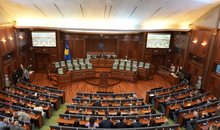
Constitution fails again, Kosovo still without a new Assembly
2025-05-09 11:06:55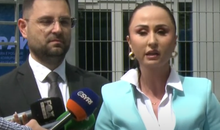





"Votes have no price", the US embassy in Tirana 'slaps' Rama
2025-05-09 10:06:49

Two young men arrested for supplying criminal groups with firearms
2025-05-09 09:45:19




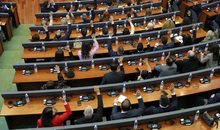


Foreign exchange/ How much foreign currencies are bought and sold today
2025-05-09 08:19:18
The gift that Berisha gave to Rama 'live'
2025-05-09 08:13:51
3 signs that show you are spiritually protected
2025-05-09 08:05:39

Bars can't hold back anymore, start increasing coffee prices, 4.7% more in April
2025-05-09 07:46:49

Horoscope, what do the stars have in store for you today?
2025-05-09 07:22:06
Unstable weather, afternoon brings rain
2025-05-09 07:01:29
Morning Post/ In 2 lines: What mattered yesterday in Albania
2025-05-09 06:45:46

How did LaCivita change the DP campaign? Berisha: He studied the opponent
2025-05-08 22:49:51

David defeats Goliath
2025-05-08 22:15:50

Journalist: There are SPAK infiltrators in party headquarters
2025-05-08 21:55:15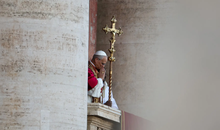
Who is the new Pope?
2025-05-08 21:48:13
Berisha finally reveals when he will retire from politics
2025-05-08 21:33:46


LaCivita in Lezha: Albanians will fire Edi Rama from his job
2025-05-08 21:11:20
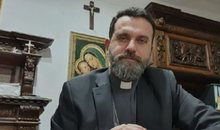

Berisha: LaCivita chose us because he believes in Reagan's program
2025-05-08 20:48:40
He rejected America to serve Pogradec, Genti Çela tells about life in "Elevate"
2025-05-08 20:26:28



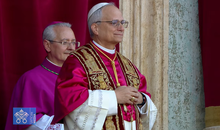
Pope Leo XIV greets the faithful for the first time in St. Peter's Square
2025-05-08 19:29:33




Photo session with LaCivitta in Tirana: For Great Albania
2025-05-08 18:40:18
Source: DASH decision a personal victory for Berisha
2025-05-08 18:30:10
Take off those crazy glasses and see where you've taken him?
2025-05-08 18:02:47
LDK files criminal charges against members of the incumbent Government
2025-05-08 18:02:00







BIRN analysis: Tirana, the determining district for the future majority
2025-05-08 16:04:03




Chris LaCivita's contract with the DP, Berisha: 100% correct and clean
2025-05-08 15:11:11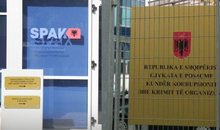

"These are the peak days", Berisha reveals when he will travel to the USA
2025-05-08 14:45:25


Endless boxes with filled-in ballots, DP demands separation of votes from Greece
2025-05-08 14:11:12


Photo/ Who are the 3 associates of Talo Çela arrested in Dubai?
2025-05-08 13:37:09
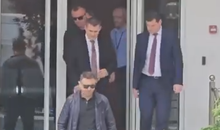
Hetimi për krimet zgjedhore, Altin Dumani zbarkon në Prokurorinë e Shkodrës
2025-05-08 13:06:21
DASH paves the way for Berisha, Alizoti: Great news on the eve of Great Albania!
2025-05-08 13:03:48
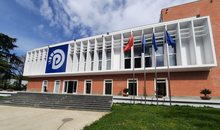
"Freedom works", DP welcomes the US position
2025-05-08 12:48:07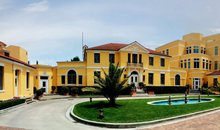
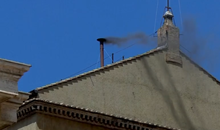
Black smoke rises from the Sistine Chapel, the Vatican still without a Pope
2025-05-08 12:26:18


